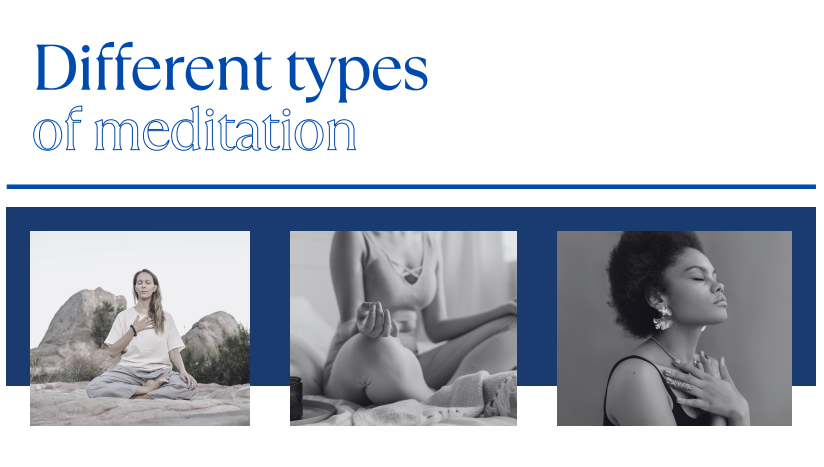Meditation is a practice that involves training the mind to focus and redirect thoughts. It can have numerous benefits for mental, emotional, and physical well-being. Here are some commonly practiced types of meditation:
1. Mindfullness Mediation
Mindfulness meditation involves paying attention to the present moment without judgment. It cultivates awareness of bodily sensations, thoughts, and emotions. This practice enhances selfawareness, reduces stress, and promotes a greater sense of calm and clarity.
2. Loving – Kindness Mediation
Also known as Metta meditation, this practice involves generating feelings of love, compassion, and goodwill towards oneself and others. It cultivates a sense of connectedness, empathy, and kindness. Regular practice can improve relationships, enhance positive emotions, and reduce negative feelings like anger and resentment.
3. Transcendental Meditation
TM is a technique where practitioners repeat a mantra silently to themselves. It aims to achieve a state of relaxed awareness and deep rest. TM is known for its stress-reducing effects, increased clarity, and improved overall well-being.
4. Body Scan Meditation
In body scan meditation, attention is systematically directed to different parts of the body, noticing physical sensations without judgment. It helps increase body awareness, release tension, and promote relaxation.
5. Walking Meditation
Walking meditation involves focusing on the physical sensations of walking, such as the movement of the feet and the breath. It can be practiced indoors or outdoors and combines physical activity with mindfulness, offering similar benefits to seated meditation.
6. Guided Visualisation
This type of meditation involves following a recorded or live guide who directs the practitioner’s imagination to visualize specific scenes, experiences, or goals. Guided visualization can enhance relaxation, boost creativity, and help in achieving personal growth.
The importance of meditation lies in its ability to promote relaxation, reduce stress, enhance selfawareness, and improve overall mental and emotional well-being. Regular practice can lead to increased focus, improved emotional resilience, better sleep, and reduced symptoms of anxiety and depression. It also has physical benefits such as lowered blood pressure, improved immune function, and reduced chronic pain. It’s important to note that while meditation can be a helpful tool, it should not replace professional medical advice or treatment. If you have specific health concerns, it’s recommended to consult with a healthcare professional.

